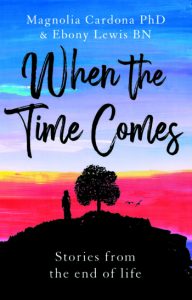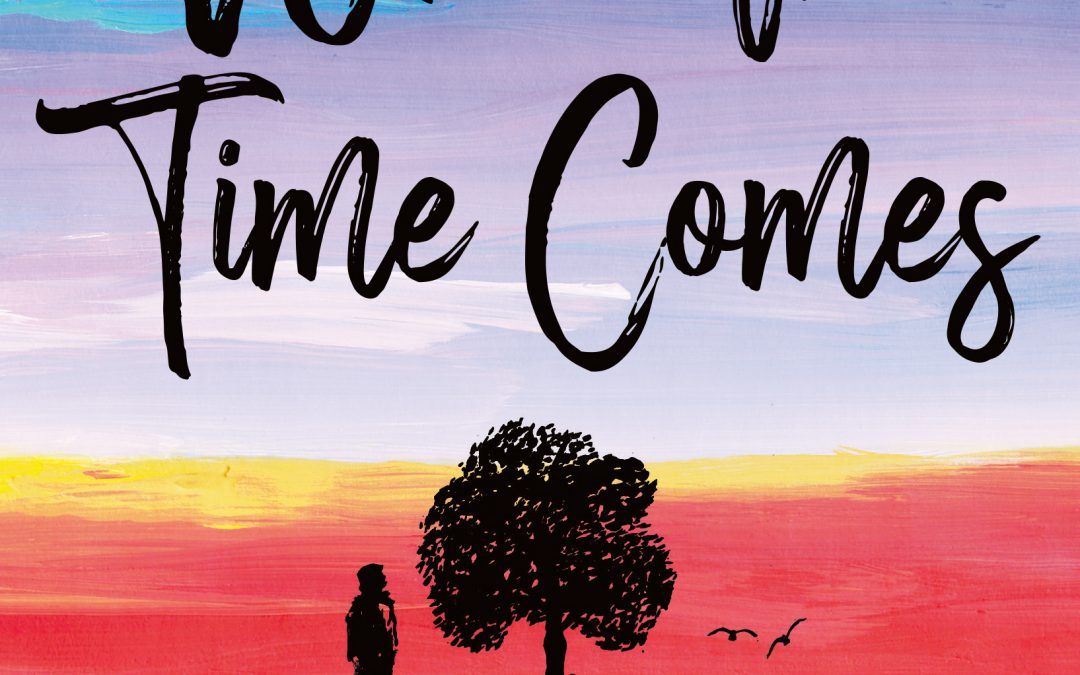
Book Title: When the Time Comes: Stories from the end of life
Subtitle:
Author: Dr Magnolia Cardona and Nurse Ebony Lewis
Publisher:
ISBN:
Category:
Price: £14.99
Sypnosis
What do we want for ourselves and our loved ones, ‘when the time comes’? Jointly written, collected and curated by a doctor and nurse working in end-of-life care, this collection of personal experiences (of families and healthcare professionals) throws light on social, cultural and individual influences on what is expected but not necessarily wanted and when we need to start asking ourselves and our loved ones – and our patients – about their preferences. In particular, the issue of futile over-treatment getting in the way of peaceful opportunities to be with friends and family and say good-bye arises again and again. Far more universal and pressing than ‘the right to die’ is the right to have a non-medicalised and not over-extended, good quality end-of-life.
Author's Biography
Dr Magnolia Cardona is a former GP, public health practitioner and current associate professor of health services research. She is a passionate advocate for the rights of older people dying of natural causes to not be over-treated with low-value care and instead have a dignifying end of life through aligning treatments with patients values and planning in advance. She arranged her own first advance care directive before the birth of her child by elective caesarean, as she envisaged the possibility of things going wrong and had the urgency for planning what clinicians and her family should do if she couldn’t decide. She now conducts research with patients, families and clinicians on ways to improve the end-of-life experience for all.
Nurse Ebony Lewis is experienced in emergency medicine and geriatrics, a skills combination that made her highly aware of the needs of older people to be treated compassionate at a place of their choice including their own home rather than in the emergency department environment or the intensive care unit. She loves talking to older patients, visiting them at home for their health assessments, and helping them express their values and preferences before they become critically ill. She was awarded an international prize for her research into advance care documentation and is now undertaking her PhD studies on frailty.

Super helpful!
Such a helpful book.
Much needed topic to focus on. Well written book which really made me think about these issues we haven’t got the courage to face.
An inspirational book about a topic not discussed enough.
This is an important book for all people to read but especially those nearing the end of life and those caring for people at the end of life. But really, we all should be thinking about this and engaging in the resources to plan for a better death.
This is one of the best reads of my life. And a very important message that benefits humanity as a whole.
This book is essential reading, putting into words the thoughts we all have but are reluctant or unable to voice. Easy to read, at times hard to accept but a vital resource for all of us, whatever our situation.
Excellent and thought provoking book!
Professor Cardona is a passionate and committed researcher focused on the identification and reduction of overtreatment in older patients near the end of life. The narrative of the book is a fantastic way to communicate methodological research to the wider public in a form easy to understand and without scientific jargon.
Excelente libro. Historia real, narración conmovedora.
Sencillamente excelente contenido
Reading ‘When the time comes’ helped me realise the importance of preparing for end of life before capacity to understand and to be involved in the process is diminished, and how this knowledge would assist my parents. I’m pleased to relate that they felt relieved when their healthcare wishes and directions were finally documented and signed, as did my siblings and I.
As a doctor who is treating a lot of geriatric patients I have found this book most invaluable and I have given a copy to quote a few patients to read and then to come back and discuss with me various issues that were raised in the book and they were being quite popular and relevant to them as our nearing the end life.
Rather than feeling depressed by patients tells enlightened realise that the journey to the end not be one of misery for caring and love.
what I like most about this book was that the book can be read from any chapter and there was plenty of discussion initiated by his chapter.
I would highly recommend this book not only to doctors but to general public and feel that it is written in such a way that can be understood in a nonclinical matter, Excellent work by the authors
I SUPPORT THIS BOOK AND I LOVED READING IT.
Highly recommended.
Comforting. Thank you.